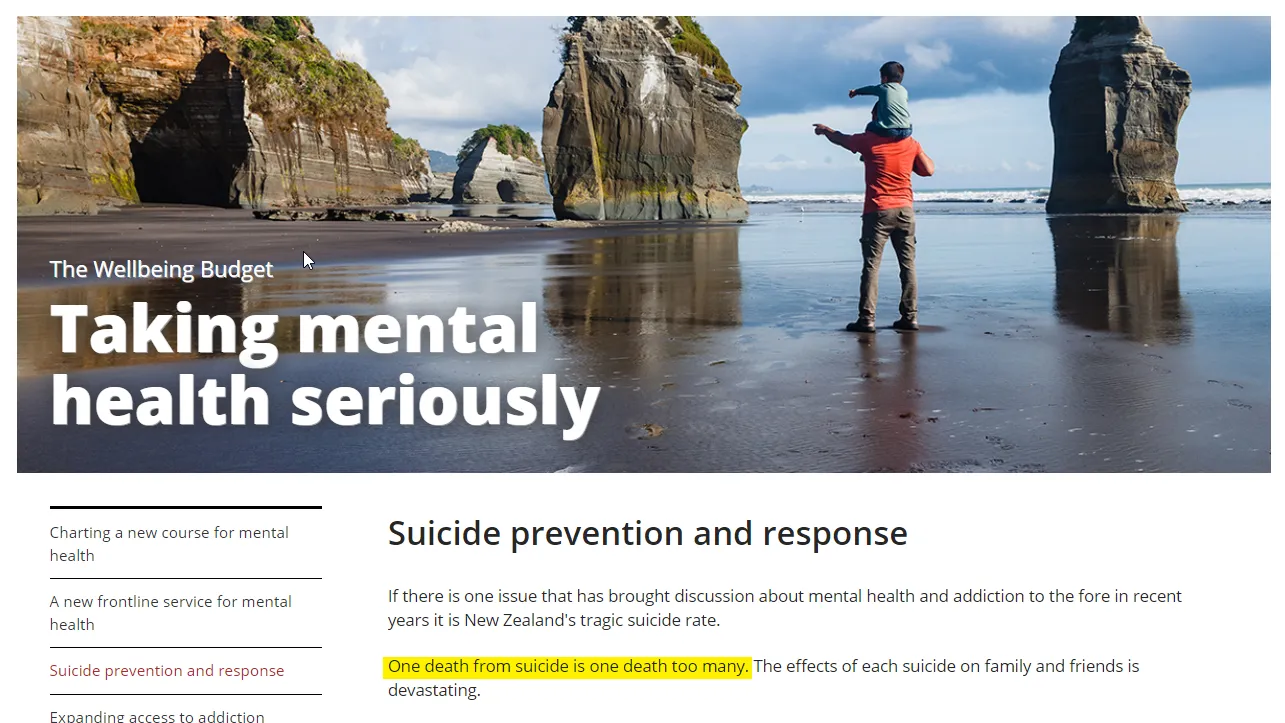Table of Contents
The End of Life Choice Bill states in clause 4:
Meaning of person who is eligible for assisted dying
In this Act, person who is eligible for assisted dying means a person who—
(a) is aged 18 years or over; and
(b) is—
(i) a person who has New Zealand citizenship as provided in the Citizenship Act 1977; or
(ii) a permanent resident as defined in section 4 of the Immigration Act 2009; and
(c) suffers from—
(i) a terminal illness that is likely to end the person’s life within 6 months; or
(ii) a grievous and irremediable medical condition; and
(d) is in an advanced state of irreversible decline in capability; and
(e) experiences unbearable suffering that cannot be relieved in a manner that the person considers tolerable; and
(f) has the ability to understand—
(i) the nature of assisted dying; and
(ii) the consequences for them of assisted dying.
Not being a lawyer or trained psychologist and not being intimately acquainted with people with suicidal tendencies this may be way off beam, but it seems that (e) and (f) above describe someone who is suicidal.
Clearly there are a few extra clauses joined in the list above with ‘and’ which tighten the requirements somewhat but supposedly there were clauses in the abortion rules to prevent abortion on demand. And yet, that is what we got.
Why then is the government allocating $40 million in the Wellbeing Budget for suicide prevention? Why is “one death from suicide, one too many” if it is really Okay and legal under the proposed bill to have assisted suicide?
If there is one issue that has brought discussion about mental health and addiction to the fore in recent years it is New Zealand’s tragic suicide rate.
One death from suicide is one death too many. The effects of each suicide on family and friends is devastating.
Tackling our stubbornly high rate of suicide won’t be easy. But this Wellbeing Budget is the start of transforming our entire approach to mental health and addiction and building entirely new services designed to support people when issues first emerge.
“To recognise the need in Maori and Pacific communities the Wellbeing Budget will fund up to eight programmes designed to strengthen their sense of identity and connection to the community.”
At the same time, the Ministry of Health is working on a new suicide prevention strategy in response to the recommendation of He Ara Oranga. The strategy is being developed alongside people with lived experience, Maori and Pacific communities and the wider mental health sector.
To support that work the Government is investing $40 million over four years into suicide prevention services, to give intensive support to people at risk. This includes better recognition and support for people who have self-harmed or experienced suicidal distress. […]
Budget2019









